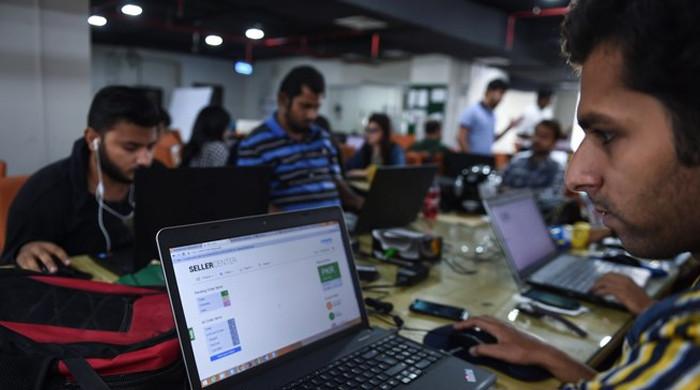There is a need for continuous evolution, adaptation and strategic alignment to enhance the technology landscape in Pakistan
In the area of technological advancement, Pakistan stands at the crossroads of innovation and opportunity. The country's evolving technology landscape presents both challenges and promising prospects for future business endeavours. As we delve deeper into this field, it becomes crucial to understand existing obstacles and potential avenues for growth.
There is a need for continuous evolution, adaptation and strategic alignment to enhance the technology landscape in Pakistan. Businesses and leaders need to recognize technology as a journey rather than a one-time project, as the ever-changing nature of technology requires constant upgrading and adaptation to new business models. Evolving global discourse, such as the integration of sustainability and environmental considerations into technological solutions, further highlights the need for companies to keep pace with contemporary requirements. What was once overlooked is now an important factor influencing global competitiveness, including reporting the carbon footprint of exports.
Infrastructure, which constitutes a fundamental axis in technological development, appears as a two-sided coin. Connectivity has improved significantly over the years, with increased investment and multiple internet cables enhancing internet connectivity in Pakistan. However, the field of data centers and infrastructure management is undergoing rapid transformation. Major industry players have changed course by adopting cloud solutions offered by major technology companies, freeing companies from the burden of managing their technology infrastructure and ensuring security in an era full of cyber threats.
For entrepreneurs and budding business owners entering the technology arena, there are certain pivotal pillars that need to be considered. Strong alignment between business goals and technology implementation becomes critical, underscoring the need for skilled IT leadership. Moreover, adopting cloud-based solutions and leveraging the flexibility they provide for rapid applications and enhanced ROI is the cornerstone of sustainable growth.
Amid these discussions, the focus is shifting to skills development – a vital tool in the machinery of technological progress. While Pakistani universities are producing IT resources, there is still a significant gap in creating “saleable” talent equipped with the practical experience required by the global market. Cooperation between universities and organizations seems like a promising solution.
The government's proactive role in leading skills enhancement initiatives can be a game-changer. Government policies and initiatives to promote technological growth show great intentions but lack a coherent direction. Aligning strategies with major IT giants could amplify their impact, perhaps creating shared service centers and supporting IT exports. Drawing insights from successful economies like India, which have driven their exports through strong IT sectors, Pakistan stands poised to leverage its IT potential for economic progress.
E-commerce, digital transformation and the rise of financial technology present a mixed landscape of promise and challenges. While e-commerce adoption is growing steadily, constraints on the digitization of the economy, especially with regard to cash-on-delivery payment models, pose obstacles to unleashing its full potential. The shift towards digital payments and the overall fintech ecosystem holds the key to unlocking further progress in this area. A catalytic shift to the digital landscape may help Pakistan catch up with emerging economies.
When delving into disruptive technologies like AI and Robotic Process Automation (RPA), it becomes clear that their integration is reshaping operational models. RPA has begun to revolutionize repetitive tasks, reduce manual interventions, and herald cost-effective solutions. The deployment of artificial intelligence, although still in its early stages, shows promise in increasing operational efficiency, albeit with a clear need for human intelligence to guide and enhance these technologies.
AI will not replace you, but the person using AI will replace you. Economic progress depends on increased employment and diversity of opportunities. Technical qualifications stand to pave the way. The future landscape of technology-driven businesses in Pakistan depends on embracing technology as a continuous journey. It requires integrating strategic leadership, skills development, policy alignment, and a proactive approach to adopting and innovating cutting-edge technologies. By recognizing the symbiotic relationship between technological development and business growth, Pakistan stands poised to carve a niche in the global technology arena.
The writer is Director of Large Projects, SAP Pakistan. He can be reached at: https://www.linkedin.com/in/fahad-zahid

